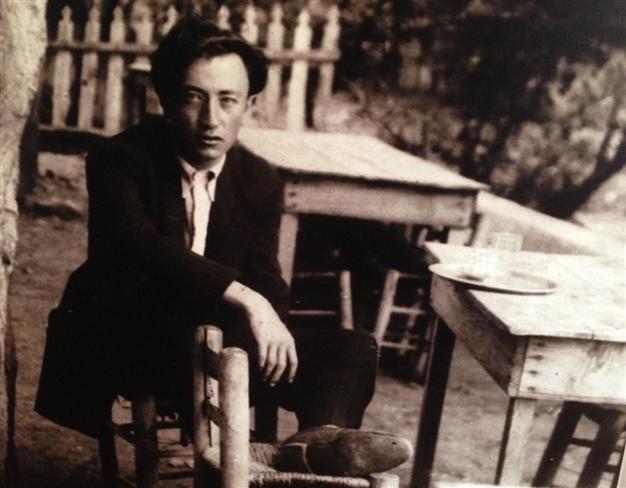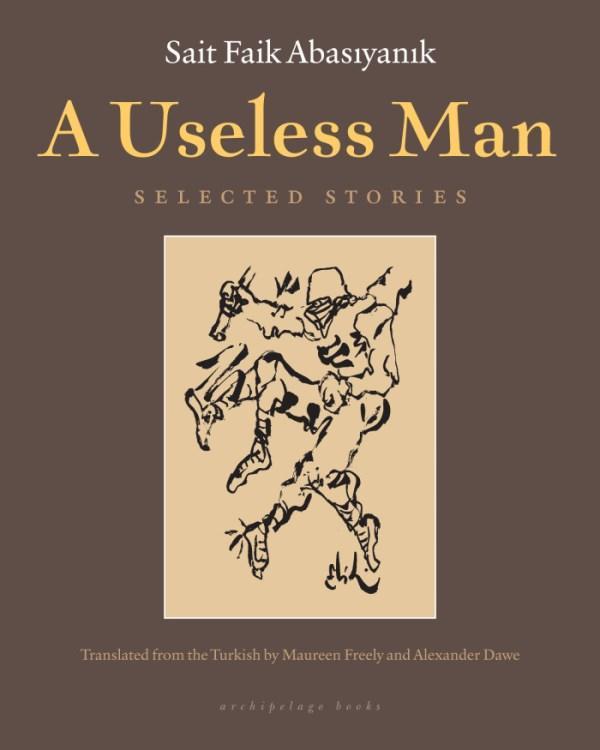‘Turkey’s Chekhov’ Sait Faik: Not a useless man
William Armstrong - william.armstrong@hdn.com.tr
 ‘A Useless Man: Selected Stories’ by Sait Faik Abasıyanık translated by Maureen Freely and Alexander Dawe (Archipelago Books, 240 pages, $18)
‘A Useless Man: Selected Stories’ by Sait Faik Abasıyanık translated by Maureen Freely and Alexander Dawe (Archipelago Books, 240 pages, $18)In the epigram to “Snow,” Orhan Pamuk’s most directly political work, the Turkish Nobel laureate quotes from Stendhal: “Politics in a literary work are a pistol-shot in the middle of a concert, a crude affair though one impossible to ignore.” In Turkey, bitter politics have a habit of infringing on art. It is a country where the proportion of adults who read novels is fairly low, but where novelists are expected to make regular political pronouncements.
 Part of the charm of Sait Faik Abasıyanik - who penned almost 200 short stories in two decades before his death from cirrhosis at the age of 46 in 1954 - is the way he floated above the fray of his turbulent times. This new selection of his stories is the latest go-to text for English readers looking for an introduction to his work.
Part of the charm of Sait Faik Abasıyanik - who penned almost 200 short stories in two decades before his death from cirrhosis at the age of 46 in 1954 - is the way he floated above the fray of his turbulent times. This new selection of his stories is the latest go-to text for English readers looking for an introduction to his work. Today, Sait Faik is regularly described as “Turkey’s Chekhov,” which is an annoying phrase but one that has some truth to it. Although he used ostensibly simple and intimate language, his stories were often opaque, elliptical and fragmentary, defined by what they left unsaid. They bear multiple readings and usually portray single characters rather than complex dramatic plots. They never outstay their welcome, and few of the inclusions in A Useless Man extend beyond five pages.
In the afterword, translators Maureen Freely and Alexander Dawe, (who have done a crisp and unfussy job), describe Sait Faik’s stories as “fleeting meditations” and “stills of life organically unfolding.” Many do not even do much unfolding; the author is so closely focused on character that plot is often almost non-existent. Sometimes this is more successful than at other times, but the stories are never boring.
In his much-loved “The Silk Handkerchief,” which marries character-focused meditation with a relatively busy plot, Sait Faik is at his naturalistic best. A poignant masterpiece of concision, it tells the story of a silk factory guard who strikes up empathy with a wild young thief before tragedy strikes. In “Papaz Efendi,” which like many of the author’s stories features a protagonist from Turkey’s dwindling Christian minority, the innocence of an eccentric island priest with “the look of an unruly child” is baffling to the locals. Slander is the sad, inevitable result.
Sait Faik once asked the question: “If works of literature do not carry people into a new, happy, different, good, and beautiful world, what good are they for?” His work is full of humanistic portrayals of laborers, fishermen, children, tradesmen, the unemployed, the poor, and it occasionally veers into sentimental territory. Today, Sait Faik is one of the best loved writers in Turkey, but he was by no means a simplistic optimist.
In the final piece of this selection, “Loneliness,” he captures something essential about how he viewed his art, directly addressing the reader: “Nothing’s beautiful without people. It’s people who bring beauty into a landscape … Without people there is no meaning.” Sait Faik’s best stories combine this trademark innocence with a profound intelligence, showing that people also bring sadness, disappointment, rivalry, frustration and confusion. He should certainly be better known among English readers and this volume is a good place to start.










